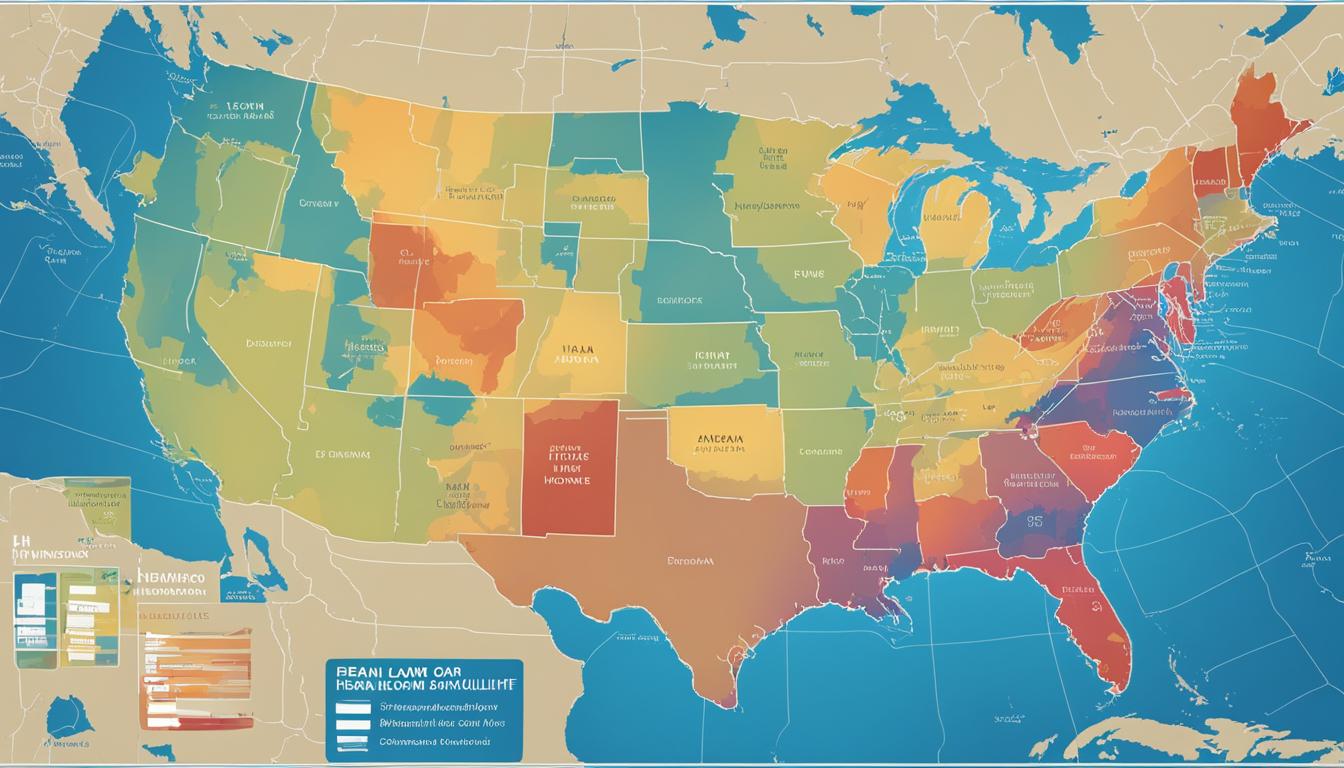Are you considering buying a home and need financial assistance? Look no further than an FHA loan. The Federal Housing Administration (FHA) offers a range of mortgage options to help individuals and families achieve their dream of homeownership. Whether you’re a first-time homebuyer or looking to refinance, an FHA loan might be the right choice for you.
Key Takeaways
- FHA loans are backed by the Federal Housing Administration.
- They require a minimum down payment of 3.5%.
- To qualify, borrowers need a minimum credit score of 580.
- FHA loans have flexible eligibility requirements and competitive interest rates.
- The home you purchase must be your primary residence.
FHA Loan Credit Requirements for 2023
An important aspect of securing an FHA loan is meeting the credit requirements set by the Federal Housing Administration. These requirements determine your eligibility for the loan and play a crucial role in the approval process. Understanding the FHA loan credit requirements for 2023 is essential if you’re considering applying for this type of mortgage.
The most significant factor in determining your eligibility for an FHA loan is your FICO® score. To qualify for the low down payment advantage of 3.5%, you must have a minimum FICO® score of 580. However, if your credit score falls between 500 and 579, you may still be eligible, but you’ll need a higher down payment of 10%.
In addition to credit scores, FHA lenders consider other aspects of your credit history. They assess your payment history, bankruptcy records, and any previous foreclosures. It’s crucial to have a solid track record of timely payments and a good credit history to increase your chances of approval.
FHA Loan Credit Requirements for 2023
When applying for an FHA loan, you must meet certain credit requirements specified by the Federal Housing Administration. These requirements play a crucial role in determining your eligibility for the loan. The most significant factor is your FICO® credit score.
To qualify for the low down payment advantage of 3.5%, you must have a minimum FICO® score of 580. If your credit score falls between 500 and 579, you may still be eligible, but you’ll need a higher down payment of 10%. However, meeting the minimum credit score requirement is just the first step.
FHA lenders also consider other factors, such as your payment history, bankruptcies, and foreclosures. Having a solid track record of timely payments and a good credit history will greatly increase your chances of approval. It’s important to demonstrate financial responsibility and show that you can manage your debts responsibly.
| Credit Requirement | Minimum Criteria |
|---|---|
| FICO® Score | 580 for a down payment of 3.5% |
| 500-579 for a down payment of 10% | |
| Payment History | Timely payments without significant delinquencies |
| Bankruptcy | At least two years since discharge |
| Foreclosure | At least three years since foreclosure or deed-in-lieu |
Meeting the FHA loan credit requirements is crucial to securing an FHA loan. While the minimum credit score is important, lenders also consider your payment history, bankruptcies, and foreclosures. Demonstrating a solid track record of timely payments and responsible financial management will greatly increase your chances of approval. Take the time to review your credit history, address any issues, and work towards improving your credit score before applying for an FHA loan.
Benefits of an FHA Loan
An FHA loan offers several benefits that make it a preferred choice for many borrowers. One of the main advantages is that FHA loans are easier to qualify for compared to conventional loans. This means that even if you have a lower credit score or limited credit history, you may still be eligible for an FHA loan. This is especially beneficial for first-time homebuyers who may not have a long credit history.
Another benefit of an FHA loan is the competitive interest rates it offers. With lower interest rates, your monthly housing payments can be more affordable, allowing you to allocate your funds towards other expenses or savings. This can make a significant difference in your overall financial well-being.
If you have experienced a bankruptcy or foreclosure in the past, an FHA loan can still be an option for you. By reestablishing a good credit history and demonstrating a solid payment record, you may be able to qualify for an FHA loan. The FHA considers various aspects of your credit history, including your payment patterns for utilities, rent, student loans, and more, to determine your creditworthiness.
Overall, an FHA loan provides a pathway to homeownership by offering easier qualification requirements, competitive interest rates, and opportunities for those with a less than perfect credit history. If you’re looking to buy a home and meet the FHA loan requirements, it might be worth considering this option as it can help you achieve your homeownership goals.
FAQ
What is an FHA loan?
An FHA loan is a mortgage insured by the Federal Housing Administration. It is designed to help borrowers, including first-time homebuyers, secure financing for single family and multi-family homes.
What are the FHA loan requirements?
To qualify for an FHA loan, borrowers must have a minimum FICO® score of 580. However, a score between 500 and 579 may still be eligible with a higher down payment of 10%. Other requirements include a debt-to-income ratio of less than 43%, proof of steady income and employment, and the home must be the borrower’s primary residence.
How much is the down payment for an FHA loan?
The down payment requirement for an FHA loan can be as low as 3.5% of the purchase price. However, borrowers with a credit score between 500 and 579 will need to put down a higher down payment of 10%.
Are FHA loans easier to qualify for compared to conventional loans?
Yes, FHA loans are generally easier to qualify for compared to conventional loans. This makes them more accessible for first-time homebuyers and those with lower credit scores.
What are the benefits of an FHA loan?
FHA loans offer several benefits, including competitive interest rates, lower down payment requirements, and the ability to qualify even with a past bankruptcy or foreclosure by reestablishing good credit and a solid payment history.





